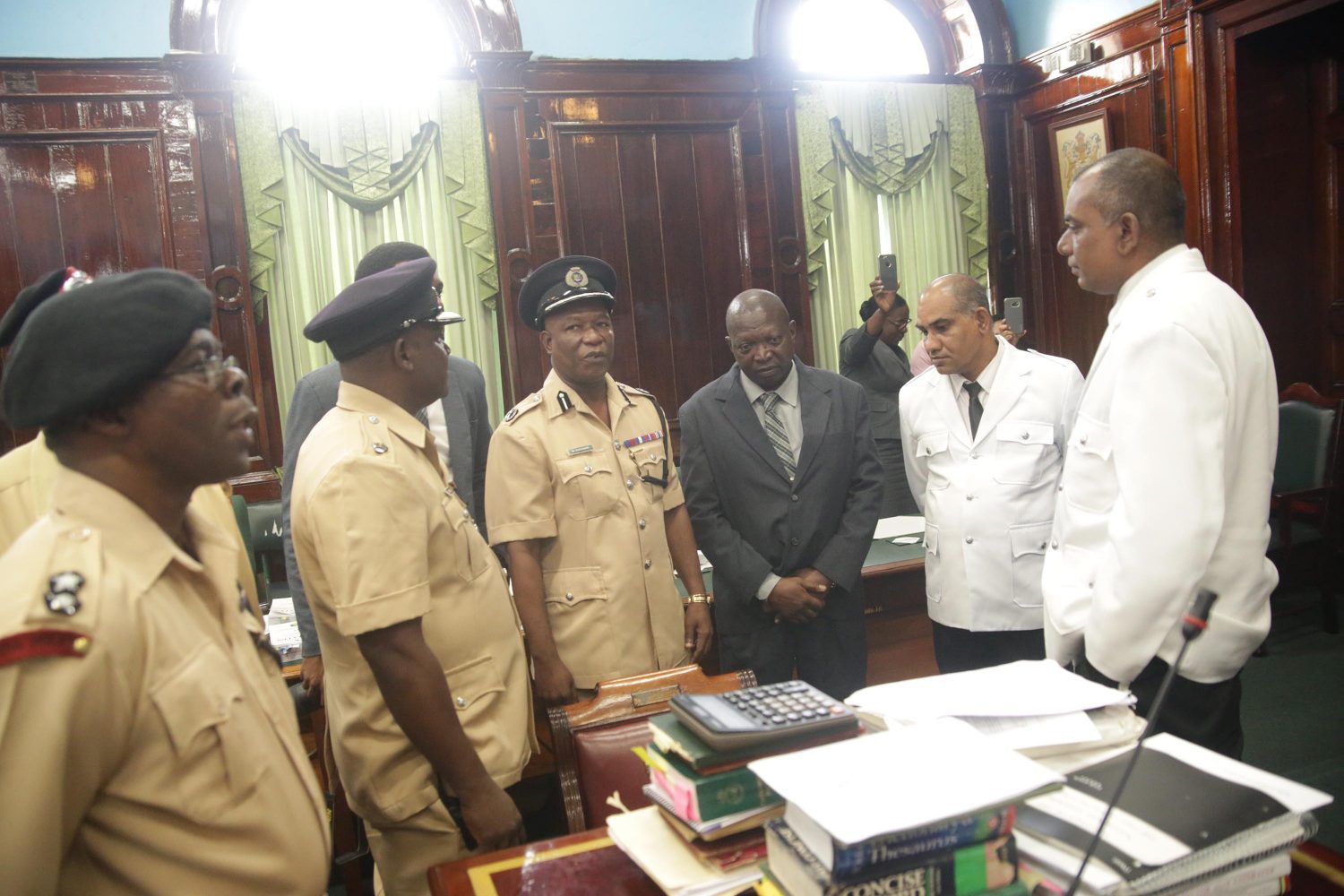Lawmen who showed up in the Parliament Chambers on Monday following the ruckus around PPP/C Member of Parliament, Juan Edghill were summoned by a caller purporting to be acting on the instruction of the Clerk of the National Assembly Sherlock Isaacs, a well-placed source told Stabroek News.
The source noted that while the police were called to the chambers, they were not there to arrest anyone but to prevent a breach of peace.
Both the Speaker of the National Assembly Dr Barton Scotland and the Clerk have denied calling in the police. The summoning of the police and the melee that erupted when they entered Parliament Chambers have spawned discussion over the immunities of MPs and whether the involvement of the law enforcers was judicious and necessary.
Stabroek News gathered that the call to the police was made to the commander’s office and it requested that Commander of ‘A’ Division Marlon Chapman visit Parliament Chambers.
It was related that when Chapman entered Parliament Chambers, he spoke with Isaacs, former Attorney General Anil Nandlall and other opposition members of parliament in a bid to resolve the issue. However, it was explained by the source that before they could have resolved the issue a group of junior ranks stormed into the chambers and attempted to remove Edghill, who was seated and surrounded by fellow opposition of Members of Parliament. This then led to a brawl between the police and MPs
It is believed that that the junior ranks were instructed by an official who was outside of the parliamentary chambers to enter and remove Edghill.
Prior to the melee on Monday, Scotland deemed Edghill “out of order,” and ordered that he be removed from the House. The order was made after several warnings to the MP to take his seat.
Edghill was on the floor attempting to ask further questions on the estimates for the Ministry of the Presidency. The time allotted for discussions for that ministry had expired and the Speaker indicated that he would no longer entertain any questions. Edghill rebutted this and told the Speaker that there were four other agencies under the ministry and more time was needed to scrutinise the estimates.
The Speaker had told him to take his seat but he refused and he was then ordered to be removed from the House since he was out of order. Edghill shouted that he was not leaving and as Scotland called for the Sergeant-at-Arms to escort him out, he took his seat and refused to budge.
As the Sergeant-at-Arms remonstrated with him, Edghill, with the support of his colleagues, remained seated. Scotland then said that the Sergeant-at-Arms should seek assistance and left the chamber.
Edghill in his protest said he was not moving since he was an elected member of the House. Two policemen then entered the chamber and attempted to get Edghill out but their attempts were in vain. His colleagues later surrounded him, circling him with their arms, and they shouted that they all would have to be arrested since Edghill had parliamentary immunity and could not be touched by the officers.
While Chapman and senior police officers were standing to the side, about five policemen dressed in blue approached Edghill, who was at the time surrounded by his colleagues, and then attempted to forcibly remove him. At this point the situation in parliament escalated and it was Chapman, the source said who ordered the junior ranks out of the chambers when the issue escalated.






